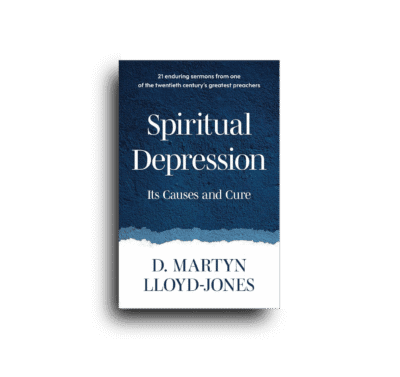Asking for help is hard. My preferred route, in a time of struggle, is to bear down and pretend everything’s fine, isolate, throw myself a string of silent pity parties, and then finally fall apart to whoever is unfortunate enough to ask me how I’m doing.
The accompanying thought process is its own defeating swirl: I should be able to handle this. This problem is too insignificant for God to care about…But everything is falling apart! No, everything’s fine. You’re being irrational. You need to talk to someone about this. But I don’t want to burden anyone else with my issues. That person walking over better not ask me how I’m doing…
I’m certain I’m not alone in this unhealthy pattern. There’s an attractive, but false, sense of righteousness in isolationism: I’ll suffer silently so that I don’t bring anyone else down or bother God with my whining. But in doing this, we’re actually missing God’s design for our need.
Looking at Scripture, it’s clear that God wants us to acknowledge our need, not hide from it. We are free to seek help, even encouraged and commanded to do so! I’ve found several truths helpful in softening my own heart in this struggle.
1) Needing help has always been part of God’s design for us.
Sometimes we avoid asking for help out of fear that it admits failure. We think, I should be able to handle this on my own; I’m supposed to succeed. I just need to push through.
But the truth is that God created us with a need for help. Asking for help isn’t admitting failure, but recognizing the way God made us. Even before the fall, in Garden of Eden, God created Adam to receive provision and help rather than be self-sufficient. On a material level, God provided all of Adam’s food, water, even his breath. He provided fellowship for Adam through his own presence.
But God also created Adam with a need for help from another person. He created Eve with this purpose in mind: “It is not good for man to be alone; I will make him a helper suitable for him” (Genesis 2:18).
God said that his own creation was not complete until he had built in a way for people to give and receive help – even before sin came into the world, it has been God’s design for us to need help and give help to each other.
This means our need for help is not shameful or equal to failure. God built into us a need for help from the very beginning – and then he immediately began fulfilling that need.
2) Asking for help is a blessing to others.
Sometimes we avoid asking for help out of fear that it will be a burden to others. We think, I don’t want to drag someone else down with my pain. It’s not fair for me to ask someone else to carry this weight. This thinking also forgets the way God has created us as a body of believers.
God wants us to help each other in times of struggle and sin. Scripture commands it: “Bear one another’s burdens, and so fulfill the law of Christ” (Galatians 6:2). When you ask someone else to help you bear a burden, you are giving them an opportunity to serve God and share Christ’s love with you.
We also see throughout Scripture that God has created each of us in the body of Christ with different strengths, calling to use these strengths fully to glorify him and build up others. When you find you are weak in one area and call on someone else who is strong for help, you are giving them an opportunity to exercise their God-given gifts.
God designed the body of believers to work together and help one another – not to function as isolated individuals. By asking for help, we are honoring God’s purpose in gifting us differently and honoring each other by encouraging the use of these gifts – and this is far from placing an unfair burden on someone else.
3) Asking for help acknowledges the truth of our need and God’s grace.
Even though asking for help doesn’t automatically equate to failure, the fact is that we do fail, and we are weak. We are needy. Though it can be painful for us to acknowledge, God never shames us for admitting this truth. God’s desire in Scripture is that we would cry out to him and turn to him. He invites us to find our sufficiency in him.
Sometimes gently, sometimes forcefully, he reveals to us that we are not able to meet our own needs but that he desires to fill us with his own provision and grace where we are weak. (“I won’t admit my weakness, won’t ask for help,” sounds closer to rebellion than it does to submission, doesn’t it?) As he said to Paul in a time of weakness and struggle, “My grace is sufficient for you, for my power is made perfect in weakness.”
I sometimes tell myself the lie that God isn’t that interested, or is even a little annoyed with me. Surely it must be draining to see my failures and then to hear me ask for help over and over again. But look at the way God represents himself in Scripture:
- He is our Father, raising us as children, feeding us, and providing for our every need.
- He is our husband, providing loving care and overflowing with affection for us.
- He is our deliverer, saving us from sin and destruction.
- He is our hiding place, our strong tower, our refuge, our good shepherd, our Savior.
In all of these ways, God longs to meet our needs. It’s simply not possible that God intends for us to “push through” without calling on his grace and compassion.
Ask for Help!
God’s plan for us in times of need is so clear, it’s laughable that we try to isolate and care for our own needs. We are weak and needy, but God is strong and desires to help us. Doesn’t that ring of the gospel? Isn’t that true through the whole narrative of Scripture?
We are weak, rebelling in our independence, unable to survive alone, but God is strong and desiring to cover us with his grace and help. He gives us his own compassion and provides a body of believers, gifted to care for each other. We don’t have to give in to the isolation and thought swirl and heavy burdens. What a relief!
Take freedom in this: God has designed us to need help, and we honor him in asking for it.



